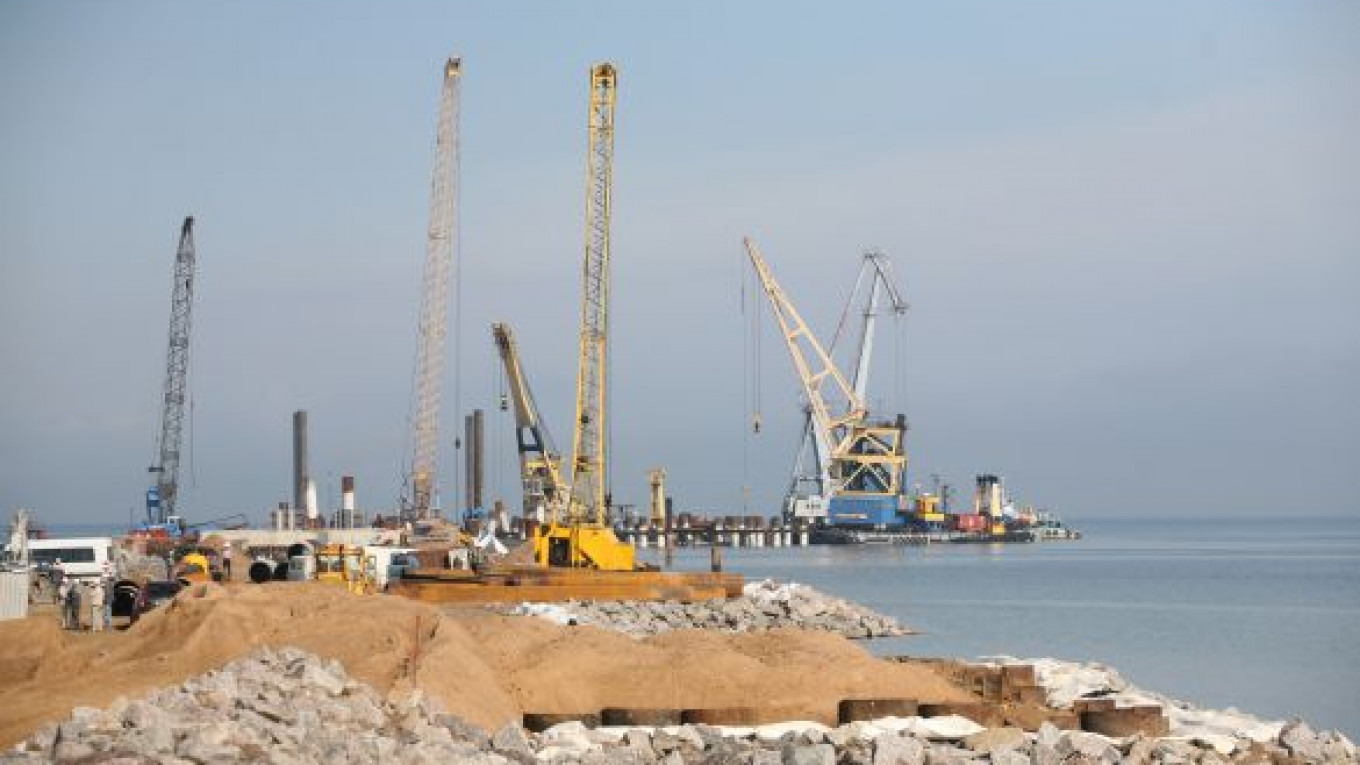President-elect Vladimir Putin may have to choose which industry is more important — gas or electricity — as Gazprom asks for a prices increase and energy prepares to protest.
Putin is scheduled to officially open the Baltic Pipeline System 2 pipeline Friday, after delays because of problems with moorings in the port of Ust-Luga. After the ceremony, Putin will hold a meeting at the Kirishskaya generating station on the topic of gas supply, his press secretary Dmitry Peskov said.
What was expected to be a completely ordinary meeting on technical issues was transformed at the last moment when Gazprom proposed raising its prices by 45 percent from the current level by the end of the year.
Two federal officials told Vedomosti that Gazprom is proposing to raise its prices for industrial consumers 26.3 percent in the fourth quarter (in addition to the 15 percent increase scheduled for July) to offset 64 billion rubles ($2.2 billion) of losses from a doubling of its mineral extraction tax.
If the government approves, Gazprom's average wholesale price could rise to 4,000 rubles ($135) per 1,000 cubic meters without VAT by the end of the year, a level it planned to reach only in 2014.
Unofficially, representatives of the energy sector are calling it a disaster. But a Gazprom employee called it a normal response to a doubling of the tax (after a 61 percent increase in 2011).
Economic Development Minister Elvira Nabiullina confirmed that Gazprom had requested an extra price rise but opposed the move, sending Gazprom shares down 2 percent and extending its falls since a March 15 peak to 9 percent, valuing the company at $145 billion, Reuters reported Thursday.
"We, as a matter of principle, do not support an additional increase in tariffs for the natural monopolies on top of what had already been expected," Nabiullina said.
Gazprom's marketing unit signed an initial deal to buy liquefied natural gas from fields discovered off Israel's Mediterranean coast, Bloomberg reported Thursday.
Gazprom Marketing and Trading and Levant LNG Marketing signed a letter of intent, Gazprom said. Levant LNG plans to sell gas produced at Israel's Tamar and Dalit fields using a floating LNG plant.
Levant LNG was formed by Daewoo Shipbuilding and Marine Engineering, D&H Solutions and Next Decade. Gazprom also met with partners in the gas fields including Isramco Negev 2 LP, Noble Energy and Delek Drilling LP.
The Tamar and Dalit fields are due to start output next year.
Gazprom is also seeking opportunities to join a U.S. project to liquefy the fuel for shipment by tanker.
Gazprom Global LNG is participating in tenders for fuel shipments as U.S. shale gas output drives down prices, allowing import terminals to be revamped for loading and production, according to Frederic Barnaud, the executive director of the Gazprom unit. Gazprom wants to handle deliveries of as much as 90 million tons of LNG globally by 2030, he said.
Gazprom opened its U.S. trading unit in Houston in 2009 to gain a foothold in the local market.
A Message from The Moscow Times:
Dear readers,
We are facing unprecedented challenges. Russia's Prosecutor General's Office has designated The Moscow Times as an "undesirable" organization, criminalizing our work and putting our staff at risk of prosecution. This follows our earlier unjust labeling as a "foreign agent."
These actions are direct attempts to silence independent journalism in Russia. The authorities claim our work "discredits the decisions of the Russian leadership." We see things differently: we strive to provide accurate, unbiased reporting on Russia.
We, the journalists of The Moscow Times, refuse to be silenced. But to continue our work, we need your help.
Your support, no matter how small, makes a world of difference. If you can, please support us monthly starting from just $2. It's quick to set up, and every contribution makes a significant impact.
By supporting The Moscow Times, you're defending open, independent journalism in the face of repression. Thank you for standing with us.
Remind me later.






